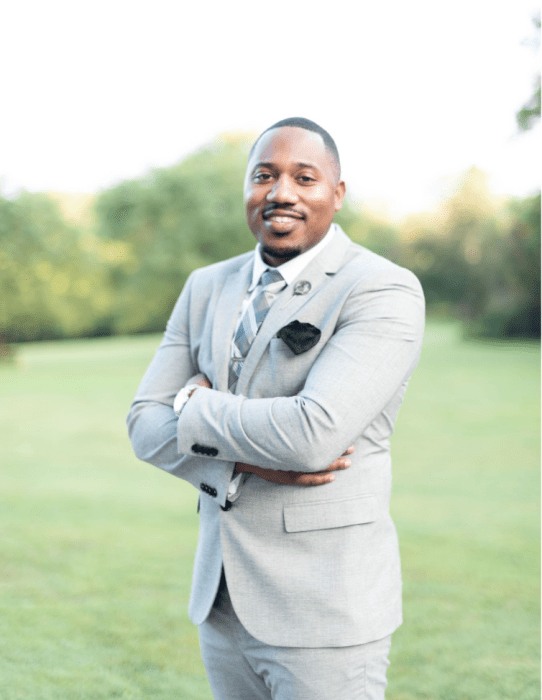Dr. Darryl Johnson, Jr., is an engaging school leader whose purpose is to help students design their lives through personal development, intrinsic motivation, and education. He has a passion for advancing educational frameworks, duplicating change agents, and building positive academic environments for student success as it pertains to instruction, education reform, STEM education, social welfare, equity, and discipline. Dr. Johnson received his bachelor’s degree in Sociology from Bloomsburg University in 2005, and later received both his master’s degrees in Educational Administration and his executive EdD from Gwynedd Mercy University. Dr. Johnson has over 11 years of experience in the School District of Philadelphia, working hands-on with students, parents, and staff in various professional roles both in schools and the central office. In August 2021, Dr. Johnson was named principal of G.W. Carver High School of Engineering and Science. Dr. Johnson continues to focus on leadership, instruction, innovation, cultural competence, restorative justice, service, mentorship, and entrepreneurship. As much as he loves leading schools, his favorite roles are being a husband and father. When Dr. Johnson is not working, he is enjoying time with his wife, Elaine, and two children, Eva and Ian.
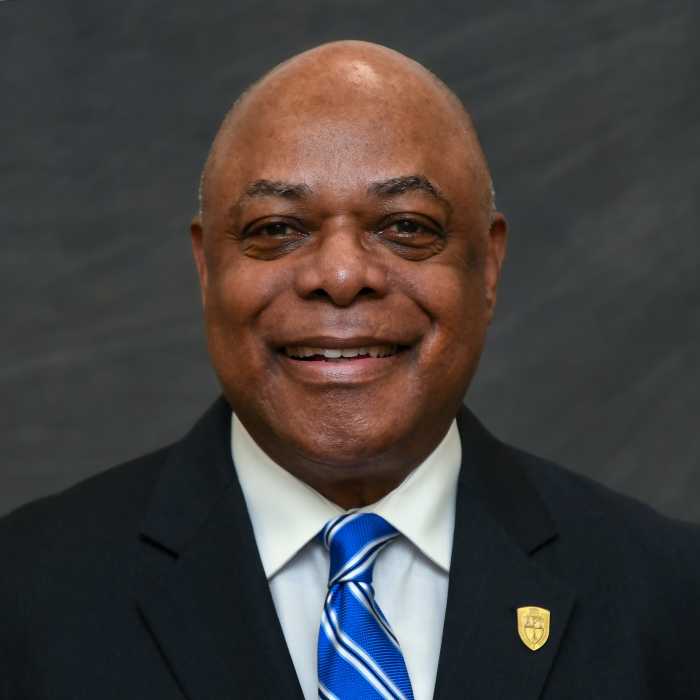
Jerry Jordan
President, Philadelphia Federation of Teachers

Philadelphia Federation of Teachers President Jerry T. Jordan is a lifelong Philadelphian, a graduate of Philadelphia’s public schools, and a high school Spanish and ESL teacher. Jerry is known for his steadfast leadership and his commitment to public education. He has led the PFT through some of the most tumultuous years of its history, including the COVID-19 pandemic. In 2021, Jerry secured a historic contract that created a paraprofessional career pathways program. He also recently served on the American Federation of Teachers Task Force regarding school staff shortages.
What is something you have learned from your students?
Tenacity. As a teacher of students learning English, sometimes being their first teacher in a country that is brand new to them, I was always humbled and moved by my students’ tenacity. Sometimes a student would enter my class without speaking any English, and would leave having conversations. Watching and getting to have a first-row seat to see a student learn has been one of my greatest honors.
What was your favorite moment or experience in your own education?
Acing a history class in college. This class was rumored to be one of the toughest on campus, with a top-notch professor who was reluctant to give any A’s. It lived up to its reputation, and I thought about dropping it during the first week. But I met with the professor who assured me that I could do it, I just needed to work hard. I ended up with that A and then took two more of his classes.
What conditions do you think are necessary for a safe and effective learning environment?
Our students need and deserve the resources in order to provide what is, in fact, constitutionally mandated: a thorough and efficient system of public education. Our schools must be reflective of a true commitment to public education and the promise of tomorrow. We should promote having smaller class sizes, updated and accurate materials, healthy buildings, and so much more.
How do we ensure those without privilege have equal access to quality education and opportunity?
The inequity in public education is shameful. Our students, a majority of whom are Black and brown, are denied resources because of the deep-seated racism that plagues so many aspects of our society. Education funding in Harrisburg, as so viscerally illustrated during the recent lawsuit, is inherently inequitable. We must collectively continue to advocate for every single resource that our children need–and we must be unapologetic and organized in our work.
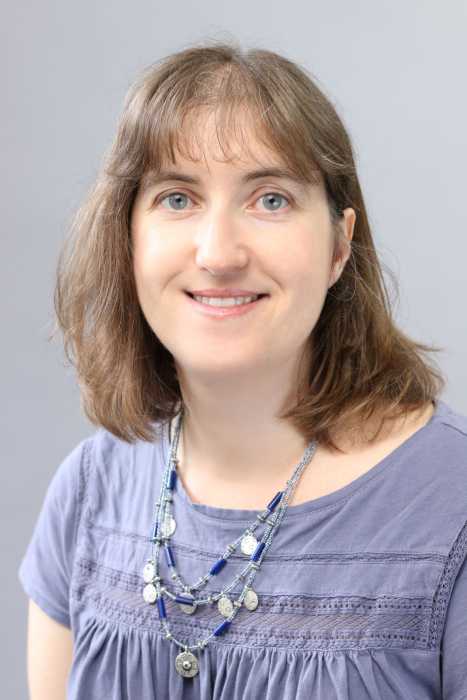
Hillary Kane
Director, Philadelphia Higher Education Network for Neighborhood Development

Hillary Kane is the director of the Philadelphia Higher Education Network for Neighborhood Development. PHENND is a consortium of over 25 institutions of higher education in the Greater Philadelphia region that seeks to help campuses connect to their communities through mutually beneficial service and service-learning partnerships. Since Hillary joined PHENND in 1999, the organization has increased its membership, developed new multi-university programs and partnerships, and become a leader in the field of service learning. Hillary is also a proud parent of a student in the School District of Philadelphia.
What is something you have learned from your students?
I am always amazed at my students’ creativity and the ease with which they express themselves visually. Not every millennial is a whiz with technology and not all my students are millennials, but I have definitely had a few who have shown a remarkable ability to communicate through videos, storyboards, poetry, music, etc. You also never know where your students’ own career paths will take them. I’ve been at this long enough where I’ve seen former students go on to lead statewide organizations or take on other significant leadership roles. It’s gratifying to work with former students as colleagues.
What was your favorite moment or experience in your own education?
I have strong memories of middle school being an especially transformative time for me. I had one teacher who had us do ‘contribution of worth’ projects, similar to what we now know as service-learning projects. When I was in the seventh grade, I started a recycling program at my school, organizing the whole thing from top to bottom. I became very committed to the environmental movement at the time, and ever since then, I have been striving to connect my education and career with the real-life challenges of the world.
What conditions do you think are necessary for a safe and effective learning environment?
Schools should learn to balance the need young people have for structure with the freedom and flexibility to try new things and think and act outside the box. We seem to see things as black and white rather than gray, meaning it’s either a highly-structured, rigid environment, or it’s a free-wheeling place where there are no rules or accountability. We have to empower students and teachers to engage with the real world authentically, which is messy and non-standardized, while also setting up some basic conditions for safety and accountability.
How do we ensure those without privilege have equal access to quality education and opportunity?
First, we must eliminate poverty and privilege. Seriously. Privileged people are always one step ahead: we can provide some new opportunities to low-income students and upper-income parents will respond by raising the bar even higher. We have to recognize that the problem is outside of the classroom and in our society–but this is not to say that schools shouldn’t be pushed to do more on equity. A truly fair funding formula is essential.
Darin Kapanjie
Associate Professor of Statistical Science at the Fox School of Business, Temple University
Dr. Darin Kapanjie is an associate professor of statistical science at Temple University’s Fox School of Business. He has held several leadership positions at Temple, and contributed to building and managing the Fox online master’s degree in Business Administration program. Dr. Kapanjie is a board member of the Garnet Valley Education Foundation, and received the Top 40 Under 40 Award from the Philadelphia Business Journal, the Musser Award for Leadership in Teaching, the John DeAngelo Innovative Leader in Technology Award, among others. He is one of the authors of Pearson’s Interactive Applied Calculus, a resource for students looking to master calculus.
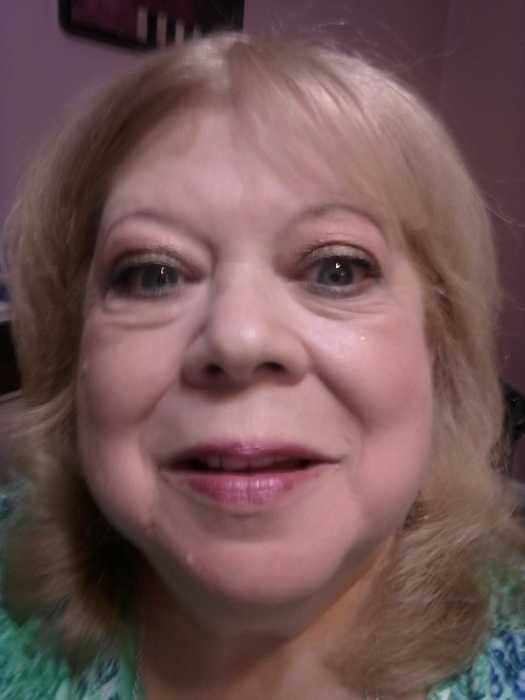
Bonnie Kaye
Education Director, Northeast Learning Center

Bonnie Kaye has been teaching adult education for 40 years. She is a high school dropout who obtained her master’s degree in Education at 32. She has developed a system to help students find a quick route to obtain their diploma within 48 hours. Bonnie and her partner, Richard Brown, started the program in 2006. Each year, they have over 225 graduates.
What is something you have learned from your students?
I’ve learned that students who want to find success will find a way to achieve it even if it takes extra time. As adults, many of them have lives that are very complicated. I work with those students and encourage them to keep moving ahead, even if it does take more time.
What was your favorite moment or experience in your own education?
My happiest moment was when I received my high school equivalency diploma when I was 26. It was far more exciting than my advanced degrees! Closing that chapter of my life was the best for me.
What conditions do you think are necessary for a safe and effective learning environment?
In our program, adults have to act like adults or leave. No disruptions, no disrespect, and of course, no cell phones. The teacher has to set the tone or chaos will ensue.
How do we ensure those without privilege have equal access to quality education and opportunity?
The Northeast Learning Center offers a program that delivers 45 hours of hands-on instruction to students, along with access to a specialized textbook for accelerated learning, handouts, and practice tests for a total of $250. If a student finds that they can’t pay for our program, they are referred to the free programs provided by the city.
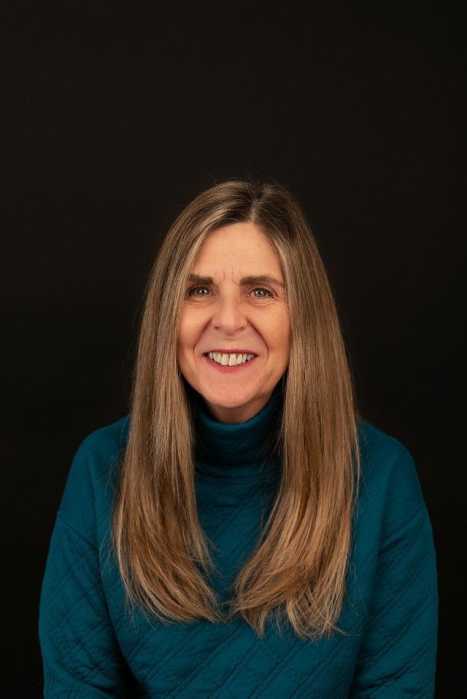
Anne Keenan
Executive Director, Reading Recycled

Anne Keenan was born and raised in a small suburb right outside of Philadelphia. Her parents emphasized the importance of education, and she became an avid reader to escape loneliness. She traveled in books to other time periods and far-off lands, and passed this love of reading to her children. After years of working as a bookkeeper, she realized something was missing and decided to pursue her master’s degree in Education at Eastern University. After a family tragedy and some deep reflection, Anne decided to dedicate her life to ensuring that all Philadelphia children have access to books.
What is something you have learned from your students?
The biggest thing I have learned from my students is that the joy of reading is still there, and is much more profound with actual books than when reading on a device. The happiness that radiates off their faces as they pick out books feeds my soul. Books still offer an escape from everyday problems and simultaneously provide some coping skills.
What was your favorite moment or experience in your own education?
My favorite moment in my education was in high school when I was discussing a book choice I had made with my teacher, Mr. Hollingsworth, who privately told me I could read a book that other kids couldn’t handle. This question made me reflect on past teachers and realize that the teachers who believed in me and pushed me to excel made me perform superiorly. Most of my teachers treated me as average, and I responded accordingly.
What conditions do you think are necessary for a safe and effective learning environment?
In the challenging times they face, with unprecedented violence surrounding them, students need to feel safe and secure in their learning environment. Students will flourish academically and socially if they feel comfortable and at ease. Each student must be treated as extraordinary and must be encouraged to excel.
How do we ensure those without privilege have equal access to quality education and opportunity?
We have debated this question for decades. The common denominator in answers is fair and adequate funding. The children with the least receive the least, which must stop. Urban teacher salaries must be on par with surrounding schools. Students in underserved schools deserve art, music, libraries, and other resources just as much as their counterparts in fully funded schools. Due to the additional challenges urban students face, there must be an added level of mental health support offered.
Dan Lazar
Principal, Albert M. Greenfield School
Dan Lazar started teaching in Oakland, California, where he taught fourth grade. He then taught middle school math in San Francisco, and then made the move back East to get his doctorate in Education at the University of Pennsylvania. He is now the principal of Albert M. Greenfield School, where he is starting his 14th year.
What is something you have learned from your students?
I have learned to laugh and enjoy the excitement that each new day of learning brings. My students have also taught me to see the best in the world and celebrate the small moments in life.
What was your favorite moment or experience in your own education?
The moment that stands out to me is an engineering unit we did in the sixth grade. The final project of the unit was an egg drop competition. I really enjoyed taking what we had learned and then applying it to real-world situations.
What conditions do you think are necessary for a safe and effective learning environment?
I think both teachers and students as well as families need to feel respected and cared for. Teachers need to be treated as the experts they are, students need to be loved and honored, and parents need to feel that they are being heard.
How do we ensure those without privilege have equal access to quality education and opportunity?
Our school and school community have worked and continue to work to provide support to all students so that they can succeed. Individualized planning for students helps us provide specific resources to help students who struggle access the education we provide.
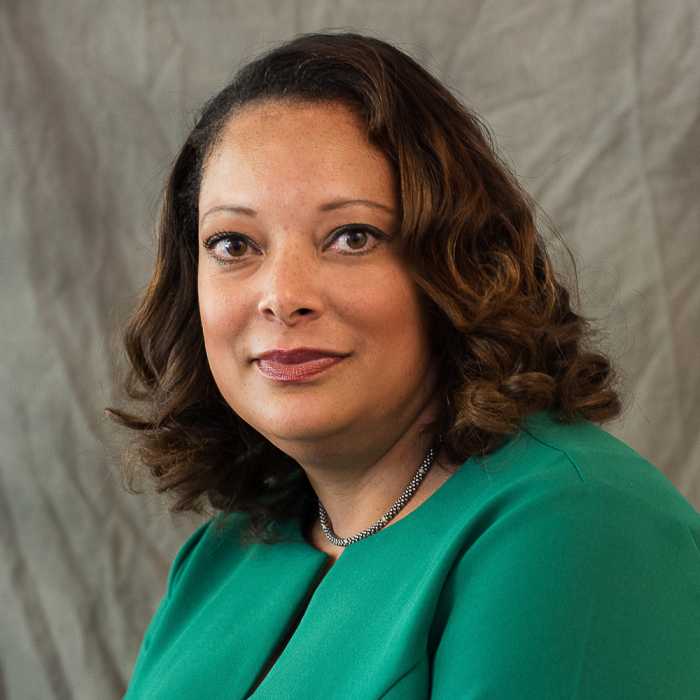
Tomeka Lee
Partner and Co-Founder, TriZen, LLC

Tomeka Lee is a partner and the co-founder of TriZen, LLC, a Philadelphia-based MBE leadership development and management consulting company. Her passion is helping individuals, companies, and youth link their goals and aspirations with the proper strategies to obtain optimal results and impact. Tomeka also leads the youth programs department of the Urban League of Philadelphia, and is responsible for designing and managing youth programs in various schools across Philadelphia and serving as an educational equity advocate.
Joy Lesnick
Deputy Chief of Research, Evaluation, and Academic Partnerships, School District of Philadelphia
Dr. Joy Lesnick is the deputy chief of research, evaluation, and academic partnerships for the Office of Research and Evaluation at the School District of Philadelphia. Prior to this, she held several leadership positions at the US Department of Education’s Institute of Education Sciences, and was the program officer for the What Works Clearinghouse, an initiative providing scientific evidence on education practices, programs, and policies. Dr. Lesnick began her career in education as a fourth grade teacher in Pennsylvania and New Jersey. She holds a PhD in Education Policy from the University of Pennsylvania, and also completed an IES postdoctoral fellowship at Vanderbilt University.
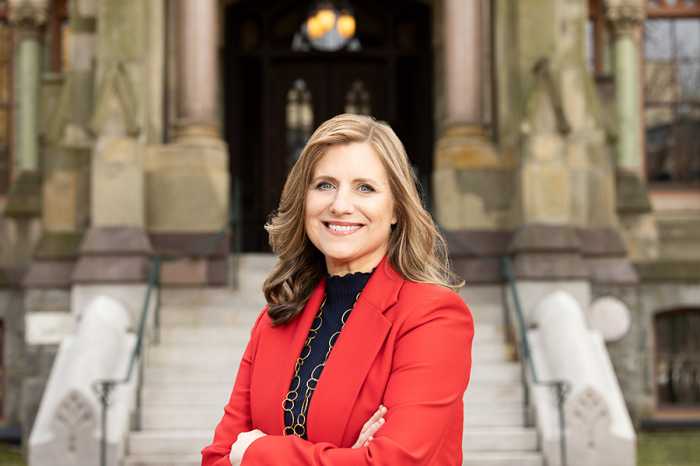
Liz Magill
President, University of Pennsylvania

In July 2022, Liz Magill became the University of Pennsylvania’s ninth president. A legal scholar and inspiring leader, she formerly served as executive vice president and provost at the University of Virginia, and as a professor and dean of the Stanford Law School. A fellow of the American Academy of Arts and Sciences, Liz is also the trustees university professor and a professor of law at the University of Pennsylvania. Prior to her career in higher education, Liz worked for US Senator Kent Conrad and clerked for Supreme Court Justice Ruth Bader Ginsburg.



